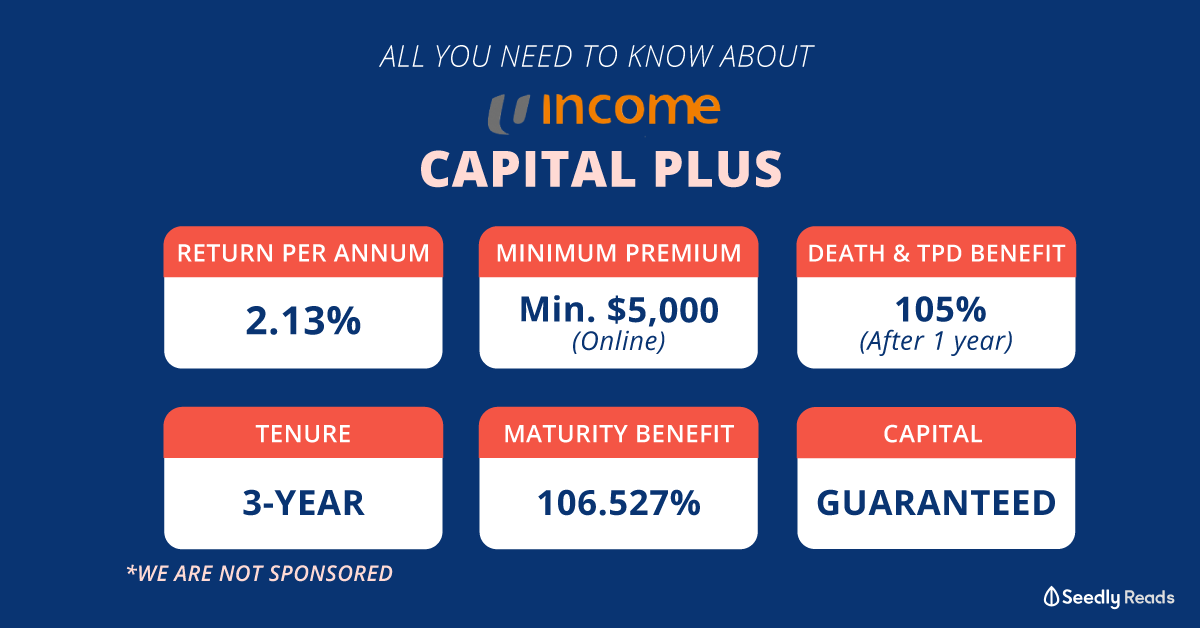Advertisement
Anonymous
Can a ECI life plan be of better value than a ECI term plan?
I am 28 ANB and was quoted
-> $1000/year up til 65 YO for GE term ECI, no surrender value
-> $1079/ year up til 65 YO for GREAT Complete Flexi Living Protect (life plan) with guaranteed surrender value of $13k at age 70
I've always believed in buying term but in this case, life plan is much more attractively priced. Or this there anything I missed out?
2
Discussion (2)
Learn how to style your text
Pang Zhe Liang
18 Jan 2021
Lead of Research & Solutions at Havend Pte Ltd
Reply
Save
Elijah Lee
17 Jan 2021
Senior Financial Services Manager at Phillip Securities (Jurong East)
Hi anon,
No, you're not missing anything out.
I've said this before but I will say it again: Term plans are only really cost effective when you are covering death and TPD up till the end of your liabilities or when your dependents grow up and become financially independent (you wouldn't need the coverage after that anyway)
When CI and particularly early CI is thrown into the picture, term plans are generally not cost efficient any more. Paying $1000/yr for the next 37 years vs paying $1079/yr for the next 37 years (and retaining ECI cover into your retirement), I think it's a no brainer to take the 2nd option.
I'll only go for the term if it was paramount that I save $79/yr, but that probably indicates that I am underpaid at my job, if $79/yr was that important for me.
You can have an early CI term plan costing $1500/yr for 30 years, and a life plan covering the same amount for $2000/yr for 20 years. No point being penny wise and pound foolish as they say. The 2nd option is better.
The old saying of "buy term and invest the rest" does not hold true in all cases but has been mentioned to the death in blogs and such. Having seen the evolution of whole life plans over the years, term just doesn't make a lot of financial sense when it comes to CI coverage, especially if you want to have CI coverage for the rest of your life.
The only thing is to look around for options amongst various insurers, since whole life CI/ECI plans can and will have differing features; it's no longer purely a price war. Beyond just premiums, plans differ in terms of scope of coverage (e.g. number of covered conditions, number of additional benefits) and you need to see which one suits you.
Reply
Save
Write your thoughts
Related Articles
Related Posts
Related Posts
Advertisement








For one thing, just because it is a term insurance policy doesn't mean that it will automatically be a cheaper and more valued-for-money option. Instead, you should spend quality time to look into the scope of coverage that each plan provide.
Assuming that the scope of coverage is exactly the same in the two plans, then the next question will be the value of $79 annually from now till age 65. In detail, we will question your ability to pay this amouny every year for the next 37 years. Thereafter, you will potentially receive $13k at age 70 for your ability to pay a slightly higher premium today. Of course, if you can do this, then you will likely have more savings as compared to a term insurance policy with zero cash value.
Finally, you may wish to look around the market to explore options that you may have missed out. This will help you to affirm that you will be making the right choice for your future.
I share quality content on estate planning and financial planning here.